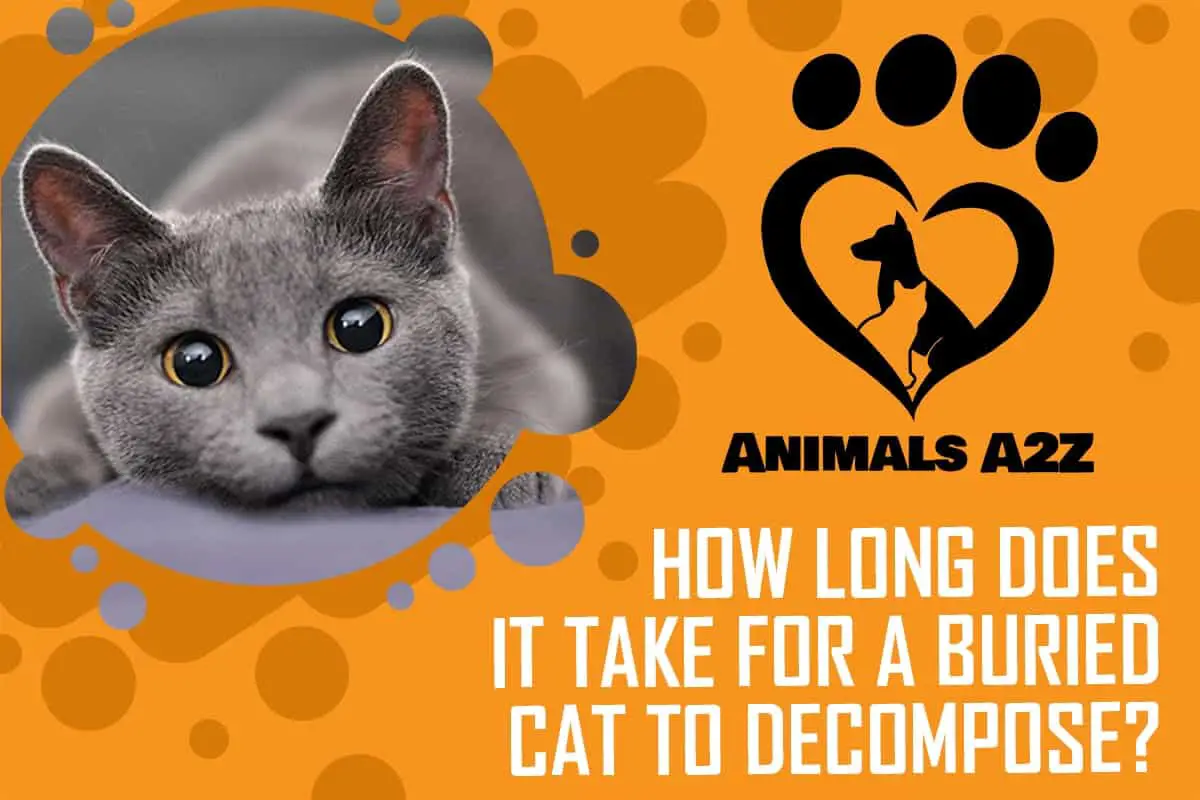The length of the process depends completely on the weather. In very cold climates it can potentially take decades. In normalt or warm climates it will take a few months.
How long it will take for a cat’s dead body to decompose depends upon the factors like the percentage of a cat’s body fat, predators’ access to the remains, and the location. Because of these varying factors, a cat’s remains could take weeks to decompose and years to decay.
All bodies of animals actually go through similar decomposition stages even though different factors can affect how long the decomposition period will take place. Below, you will be able to learn the decomposition and decaying stages.
Table of Contents
Fresh stage
It’s considered as the first stage in the decaying process of a cat’s body. During the fresh stage, you won’t be able to see too many changes in the body.
Bloat stage
The bloat stage happens not long after the fresh stage. During this stage, a cat’s dead body starts to change, and in a more visible way than it appears during the first stage. During this time, you can be able to see clearly that the body is puffing up or bloating.
Active decay stage
During the active decay stage, the body is deflating and stench becomes extremely noticeable.
Advanced decay stage
In this stage, the decayed flesh off of the dead cat’s body sets in.
Dry decay stage
This is the final decomposition stage and the easiest stage to recognize. During this stage, the remains of the cat turn mostly bone with just a few dried skin left. The dry decay stage ends the entire decomposition process.
How can you store your cat until you bury or cremate him?
If a certain circumstance arises and you can’t decide what to do with your cat’s corpse right away, your cat’s remains should be stored in cool storage. According to experts, the ideal storage place for animal corpses should be in a freezer or refrigerator, or you can at least keep the body at a very cool place if you don’t have a freezer or refrigerator.
If a cat’s corpse is frozen, then you’ll have more time, which is almost unlimited but if you only keep it in a place that’s at 4 degrees Celsius temperature or lower, then you only have not more than 2 days to choose whether to cremate or bury your pet.
Experts suggest that for larger animals such as dogs, it’s highly recommended to bury them few hours after their death since stiffening of joints can take place quickly and it will make the move and transportation of a cat’s corpse even more difficult.
How to bury your cat
It’s highly suggested by experts to bury your cat at least one meter deep. His body should first be covered with a towel, blanket, cardboard box, or anything that can decompose easily. Once your cat has been buried properly, it is advisable to put something heavy and sturdy after you filled the hole with soil. You can use concrete materials or big pots of plants to prevent other animals from digging the hole.
Common questions about how long it usually takes for a cat’s body to decompose
How long does it take for an animal to decompose underground?
Oftentimes, the decomposition process of an animal’s dead body takes from six months up to 15 years before it becomes purely bones. But it usually depends on the place where the animal is buried and how. For instance, if your pet was placed in a coffin, then it will take much longer to decompose.
Is it better to cremate or bury a pet?
Cremating your pet can be a very ideal choice compared to burying your pet’s body as it is convenient and economy-wise. Choosing to have your cat or dog cremated does not necessarily mean you can’t arrange a memorial for him. As a matter of fact, most animal crematories nowadays can be able to assist you in preparing for a memorial. If your chosen crematory company can’t do that, then consider contacting your vet as he or she can also help you in making burial and crematory arrangements.
What do you do with a dead cat at home?
Most of the time, local animal control and shelters can help you take care of a dead animal’s body. The good thing about reaching out to them first is that they have a very low cost to no cost service at all. If there’s no local pet control or shelter or help you, then you can try contacting your vet. If your vet offers this kind of service, you can take your cat’s remains to his or her clinic and they can possibly set a disposal arrangement on your behalf.
Conclusion
A cat’s decomposition stage usually depends on a lot of factors. Usually, it heavily depends on the size of your cat, where your cat’s corpse is buried, as well as the temperature of the place where you buried your cat. Generally, it takes years for your cat’s body to decompose but the specific number of years cannot be identified easily due to the factors that affect it. The most common factor that affects the faster decomposition of an animal’s body is the tropical or hot climate.


